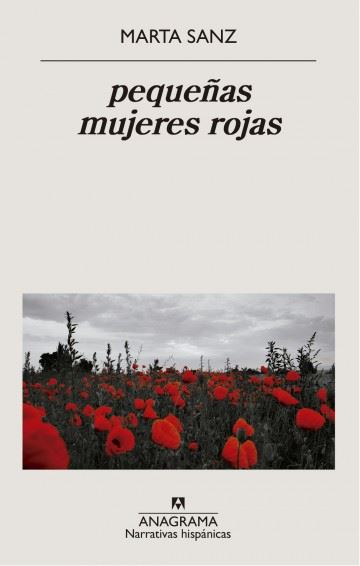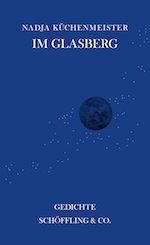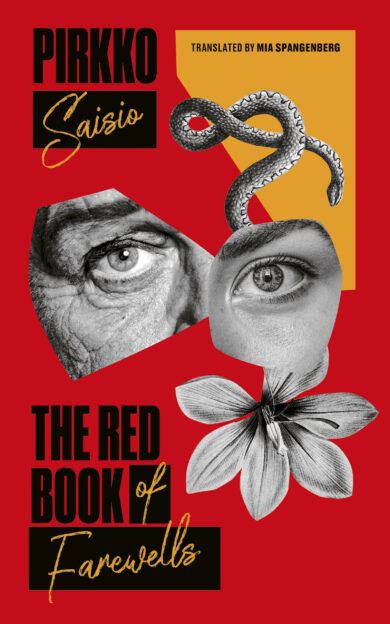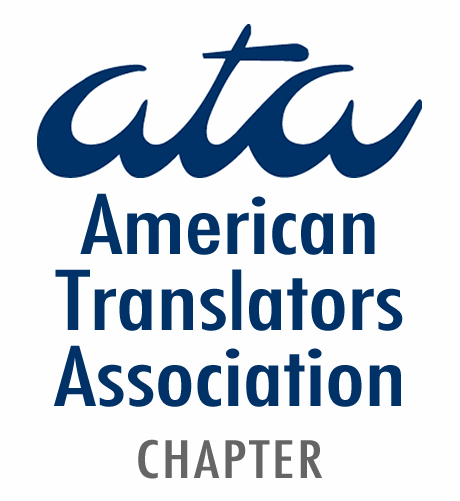At NOTIS, we celebrate women in translation all year round. We are pleased, nonetheless, to reserve for them a month of their own, their own room if you will: a space in which we can all focus our attention on the many marvelous achievements of our members who, by way of translation, are working to foreground the voices of women writers the world around.
To this end — to commemorate and celebrate their work on this most felicitous date — we are dedicating this space to share with you some of their latest accomplishments. Featured in this article are texts from Kazakhstan, Ukraine, Germany, Finland, and Spain.
Scroll down to learn more about our translators, their authors, and where you can find their work (both in print and online).
First, a few words on the initiative itself…
WOMEN IN TRANSLATION MONTH: HOW IT STARTED, HOW IT’S GOING
Women in Translation Month is an annual, August-wide celebration of women* around the world who publish in languages other than English. Having noted a glaring gender disparity in publishing in the U.S., Meytal Radzinski launched this project in 2014 in an effort to increase the visibility of women in translation and promote the important work they do.
The initiative has been wildly successful, and Meytal’s efforts are paying off in spades! Throughout the month of August, the #womenintranslation and #WITMonth hashtags dominate on social media. Publishers, booksellers, and other literary organizations (and individuals) spend the month celebrating women authors with readings and roundtables, sales and displays, endless blog posts and reviews, plus top fives and top tens and top twenties!
In a recent article for the Three Percent blog, Chad Post details the “visual success” of #WITMonth with a chart that shows the following: between 2014 and 2023, the percentage of published fiction in translation — by women —has nearly doubled (from 26% to 47%), and it is now neck and neck with that of books penned by men.
IN THEIR OWN WORDS: OUR TRANSLATORS ON THEIR TEXTS
 Shelley Fairweather-Vega on Batu and the Search for the Golden Cup, by Zira Nauryzbai and Lilya Kalaus (translated from Kazakh to English)
Shelley Fairweather-Vega on Batu and the Search for the Golden Cup, by Zira Nauryzbai and Lilya Kalaus (translated from Kazakh to English)
"Batu and the Search for the Golden Cup is the first book in a series of adventure stories for kids, based on Kazakh myths and legends. The co-authors, Zira Nauryzbai and Lilya Kalaus, are both authors I've translated before. But their children's series was one I felt was even more important to translate and share with readers outside of Kazakhstan, because, besides having written smart and exciting stories populated by great characters, the two of them are on a mission to create children’s literature that will make kids proud of (or at least more familiar with!) their own history and heritage. As Zira Nauryzbai tells the story, her pre-teen daughter was once obsessed with Harry Potter, which she and all her friends read in Russian. Zira is an expert in world mythology, and when she finally picked up a copy, she immediately saw how much of J.K. Rowling’s story was based on the myths, monsters, and magic of Northern Europe. “We have stories just as good as this! Shouldn’t our kids be reading those?” she thought, and she recruited Kalaus, also a mother of young readers, to help her craft the Kazakhstani answer to Harry Potter. Batu is the result. I would argue that exploring mythological worlds outside of the Northern European tradition we already know well should be just as fascinating for English-speaking readers. This book is a great opportunity to start that journey!"
Read more about Shelley’s translation in this interview for #WorldKidLit Month on the Global Literature in Libraries Initiative website, and you can find (and buy!) Batu and the Golden Cup here,on bookshop.org.
Shelley Fairweather-Vega is a translator who works from Russian and Uzbek into English. She has translated for attorneys, academics, authors, and activists around the world. Her translated works have been published in the US and UK, and in the Critical Flame, Translation Review, Words Without Borders, the Brooklyn Rail, and more. Shelley is a past president of the Northwest Translators and Interpreters Society and a co-founder of the Northwest Literary Translators. She lives in Seattle, where she also plays the French horn and is helping raise two kids and a cat. Learn more at www.fairvega.com.
 Katie King on small red women, by Marta Sanz (from Spanish to English)
Katie King on small red women, by Marta Sanz (from Spanish to English)
“Reading Spanish author Marta Sanz is like riding a roller coaster: exhilarating and unsettling, addictive and challenging. Her novels tackle social issues and challenge contemporary thinking with innovative literary styles. She engages readers with insightful treatments of topical themes, such as femicide and right-wing extremism in small red women and entertains them with biting satire, as in the case of her genre defying Arturo Zarco detective series, of which small red women is the third and final installment and which mocks traditional aspects of literary noir. In interviews, Sanz says her style is subversive, social, and political. Fans and book reviewers also applaud her brutal frankness, wordplay, and dazzling array of genres. ‘The extremely literary style of the book is a systematic appeal to the political conscience,’ Sanz told El País.
“I hope my translations of these two excerpts from small red women inspire English language readers — as a small taste of what awaits. The novel is not yet published in English, but my hope is that these texts spur U.S. publishers to take a look. My translation of the novel’s first chapter was published by Columbia Journal in November 2021. My translation of the second chapter was published by the European Literature Network in April 2023 as part of their brilliant special edition on Spanish authors in translation titled The Spanish Riveter: Writing from Spain. This special edition is available in its entirety for FREE in PDF format. Please click the above links to read, download, and share.”
Katie King is a journalist and literary translator. Her most recent translation, Someone Speaks Your Name by Luis García Montero, was published by Swan Isle Press in January. She has lived and worked extensively in Spain and Latin America.
 Aimee Chor on the poetry of Nadja Küchenmeister (German to English)
Aimee Chor on the poetry of Nadja Küchenmeister (German to English)
“These two poems, ‘i am light’ and ‘in the train,’ are translations from the German poet Nadja Küchenmeister’s third volume of poetry, In the Glass Mountain (Im Glasberg, 2020). Nadja, born in 1981 in Berlin, is one of the most important younger voices in contemporary German poetry. This volume circles around the speaker’s return to her childhood neighborhood in [the former East] Berlin and her ailing father, with extended meditations on illness and on the end of a love affair. The poems draw deeply from diverse sources including Grimm’s fairy tales, the vocabulary of cardiac disease, the imagery of a solar eclipse, and the medieval Canticle of the Sun of St. Francis of Assisi. Nadja’s language is at once clear, playful, and polyvalent; ambiguities of enjambment and punctuation reveal the poems’ layers, and strong rhythms emerge from sporadic rhyming and incantatory meter. Translating this book has been a joy, and I am currently looking for a publisher in hopes of bringing Nadja’s work to a larger audience.”
Read Aimee’s translations of “i am light” and “in the train” here, in Sepia. Last week, three more of her translations (from the same volume) were published here, in Four Way Review.
Aimee Chor is a translator and poet currently residing in Seattle. She holds degrees in Religious Studies from Carleton College and the University of Chicago and has spent more than three years living and studying in the German cities of Lübeck, Tübingen, and Munich. Her translations of poems by German poet Nadja Küchenmeister recently appeared in Sepia and Four Way Review and are forthcoming in AzonaL, The Apple Valley Review, MAYDAY, and elsewhere. She is on Twitter @aimeechor.
 Mia Spangenberg on The Red Book of Farewells, by Pirkko Saisio
Mia Spangenberg on The Red Book of Farewells, by Pirkko Saisio
“Pirkko Saisio’s The Red Book of Farewells (original title: Punainen erokirja) won the Finlandia Prize in 2003 when it was first published and has since become a cult classic. It is the conclusion to her lauded autofictional trilogy and chronicles the life of a fictive young Pirkko Saisio as she discovers her identity as a lesbian and finds her voice as an actor and writer in 1970s Helsinki. Fundamentally it is a universal story of love, loss, and new beginnings, but only Pirkko Saisio, with her background in theater, trademark humor, and bold experimentation in style, could pull off a work that so intimately engages the reader. She is finally gaining the attention she so rightly deserves outside her native country of Finland - and the good news is that Two Lines Press will be publishing the other two novels in the Helsinki trilogy in my translation. These novels are due out in 2024 and 2025, so stay tuned!”
To read more about The Red Book of Farewells, visit the Two Lines Press bookshop. We're also excited to announce that two more of Mia's translations — also of women — were published this year: Rosie Runs, written and illustrated by Marika Maijala, and Owl and the Mystery of Tomorrow, written and illustrated by Réka Király.
Mia Spangenberg translates from Finnish, Swedish, and German into English. Her translation of Pirkko Saisio’s The Red Book of Farewells was published this year by Two Lines Press. She holds a Ph.D. in Scandinavian studies from the University of Washington, Seattle, where she resides with her family.
 Dominique Hoffman on her translation of the article “Life in Occupied Ukraine” by Inna Zolotukhina and Iryna Yasroshynska
Dominique Hoffman on her translation of the article “Life in Occupied Ukraine” by Inna Zolotukhina and Iryna Yasroshynska
“This article about the Zaporizhzhia Nuclear Power Plant by two Ukrainian women journalists, Inna Zolotukhina and Iryna Yasroshynska, was completed primarily through interviews with people still in the city of Energodar. Inna Zolotukhina has been reporting on Russia's war against Ukraine since the very beginning of the 'hot' phase of the war in 2014 in Crimea. She provided some of the original first-hand accounts recognizing the same uniforms and approach in Donbas as in Crimea. She has continued to report the Zaporizhzhia story and published a new interview with one of the engineers this month on her youtube channel. She is also collecting testimony from the survivors of war crimes — a job I can't imagine doing. Journalists in Ukraine are in constant danger from Russian attacks, but these women are determined to get the word out about what is happening.”
Read this powerful piece, in Dominique’s translation, here, on The Dial.
Dominique Hoffman is a translator, researcher, and teacher. Her particular areas of interest include literature, art, and cultural history. She holds a PhD in Slavic Languages and Literatures and translates Ukrainian texts from Ukrainian and Russian.
.................................................
The Northwest Literary Translators of NOTIS have their own page on Bookshop.org. Click here to learn more about their recent publications!
.................................................
Did you translate something recently that you would like NOTIS to promote? Let us know! Contact the NOTIS Publications Committee at social@notisnet.org.

* Meytal carefully explains on her website that "women," in her view, incorporates and embraces transgender, non-binary, and intersex writers, too.

 12819 SE 38th St. #205,
12819 SE 38th St. #205, 